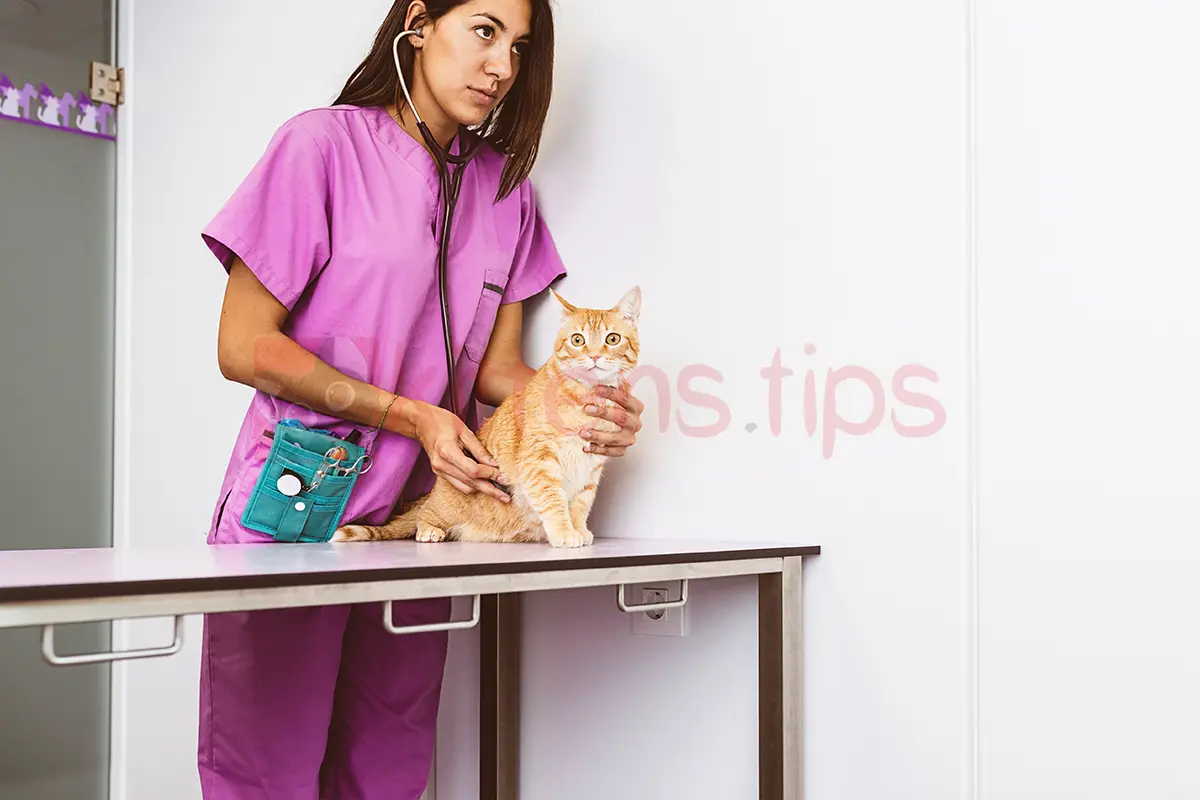Gastroesophageal reflux in cats can escalate into a serious health issue if not treated promptly. The cat’s frequent vomiting may indicate gastroesophageal reflux as a significant cause for concern, especially when it involves the regurgitation of partially or fully undigested food.
It is important to note that while cats may regularly vomit hairballs, gastroesophageal reflux is different and poses a threat to the health of the animals.
Gastroesophageal reflux is more commonly seen in young cats but can affect animals of any age. Repeated exposure of the esophagus to gastric juices may even lead to ulcers in the cat’s upper digestive system.
Causes – Gastroesophageal Reflux in Cats
The causes of gastroesophageal reflux in cats can vary. It can occur, especially after the cat has undergone general anesthesia in an incorrect position, allowing gastric juices to reach the esophagus. Additionally, a diet high in fat can contribute to the onset of this problem, especially in situations where the cat vomits frequently.
Let’s take a closer look at some of the most common causes of gastroesophageal reflux in cats.
Improper Anesthesia. A common cause of gastroesophageal reflux in cats is anesthesia administered in an incorrect position. When the cat undergoes general anesthesia, improper positioning can allow gastric juices to move upward into the esophagus, thereby affecting the health of the upper digestive system.
High-Fat Diet. Cats consuming a high-fat diet may develop gastroesophageal reflux. Food with high fat content can cause relaxation of the lower esophageal sphincter, allowing gastric juices to reflux into the esophagus.
Frequent Vomiting. Cats with a history of frequent vomiting may have an increased risk of gastroesophageal reflux. Constant vomiting can irritate the esophagus and promote the development of this problem.
Anatomical Issues. Certain anatomical problems, such as diaphragmatic hernias or congenital malformations of the esophagus, can contribute to the occurrence of gastroesophageal reflux.
Gastric Diseases. Gastric conditions, such as gastritis or ulcers, can trigger gastroesophageal reflux in cats. Inflammation or lesions in the stomach can affect the functioning of the lower esophageal sphincter.
Stress. Persistent stressful situations can contribute to the development of gastrointestinal problems, including gastroesophageal reflux. Cats sensitive to stress may experience changes in eating behavior and may have a digestive system more susceptible to such disorders.
Symptoms
Symptoms associated with gastroesophageal reflux include vomiting that contains undigested food, not just hairballs, or colored liquid (bile or gastric juices). Generally, vomiting is not accompanied by muscle spasms. The cat may become vocal and show signs of pain during swallowing, and in severe cases, there may be a significant decrease in appetite, leading to weight loss.
Related: Is Your Cat Vomiting Frequently? Causes and Remedies
Treatment
In severe cases, the veterinarian may prescribe medications to strengthen the sphincter between the stomach and esophagus. However, the most commonly recommended treatment involves adjusting the cat’s diet.
Sometimes, in more severe cases, complete cessation of feeding for a day or two may be suggested, followed by transitioning to a low-fat and low-protein diet. It is important that the food is served in small portions, distributed across multiple meals throughout the day.
If dietary adjustments do not eliminate gastroesophageal reflux, a reevaluation may be necessary. In such cases, the veterinarian may recommend more detailed analyses and even an esophagoscopy to thoroughly examine the cat’s esophagus and identify any underlying issues. Close monitoring of the response to treatment and adapting the approach according to the specific needs of each cat are crucial to ensuring effective digestive health recovery.
In conclusion, it is important to identify and treat the underlying cause of gastroesophageal reflux to ensure an effective treatment approach and prevent recurrences. Consulting with a veterinarian is highly recommended to determine the specific cause and establish an appropriate treatment plan for your cat.
